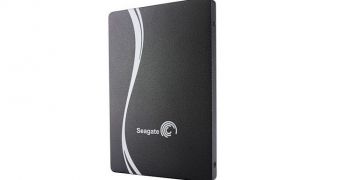As good as NAND Flash memory is, the performance of solid-state drives ultimately falls to the controller chip to determine, which is why Seagate is buying the best one there is, specifically LSI.
We're sure that some people will be against such a clear classification of LSI as the best, but it's been shown, time and time again, that its SandForce series are the fastest out there, even if they cost more than the chips from Marvell or Indilinx.
Granted, SandForce used to be its own company until LSI bought it back in 2011. At that point, SandForce controllers were already lauded as the fastest, with a very small difference between read and write speed.
The other chips on the market, even if they do enable 500 MB/s or more when reading, often are limited to around 400 MB/s or even under 300 MB/s when writing.
Given all of this, it's no wonder that Seagate wants to snatch LSI right up and make it a part of its own set of sub-companies.
That's the topic of Seagate's most recent press release, you see. The second greatest HDD supplier in the world wants to become the leading SSD supplier.
Clearly, even with 10 TB HDDs in the works, Seagate is not deluding itself into thinking that magnetic platter spinners won't be supplanted eventually.
M.2 SSDs may be new things, but they enable 1 TB capacities and speeds of up to 1.8 GB/s in a package that's only as large as two of your fingers.
Between that, the way SATA 2.5-inch units have been reaching above the 1 TB mark, and how PCI Express SSDs come in several TB/s with speeds nearing 2 GB/s, solid-state drives are really preparing to leave HDDs in the dust.
The only thing going against NAND Flash-based storage units is that they still cost a lot more than hard disk drive units.
Even that won't last forever though, and the performance gains make up for it anyway. It's no wonder that Seagate is hedging its bets.
We only have to look at what happened to the HDD industry over the past decade to see that there is no viable recourse but to embrace SSDs fully at this point.
After all, there are only three HDD makers left: Western Digital, Seagate and Toshiba. Previously, there were dozens. And even some of the big ones, like Hitachi, were acquired by the remaining big fish.
Seagate will pay LSI $450 million / €330 million for the acquisition of the Accelerated Solutions Division and Flash Components Division, which provide the PCI Express storage products and the popular SandForce family of SSD controllers.

 14 DAY TRIAL //
14 DAY TRIAL //